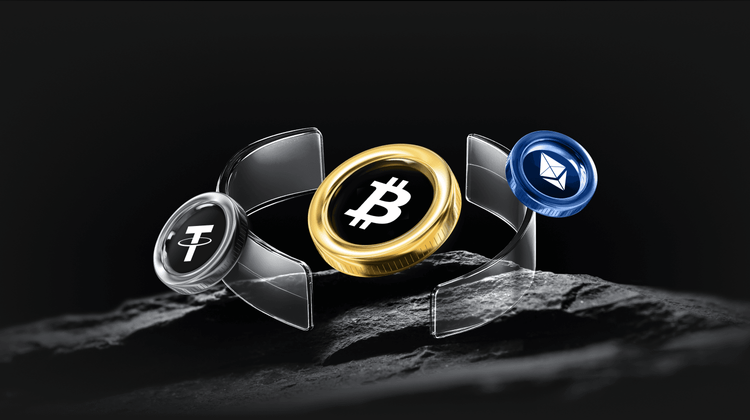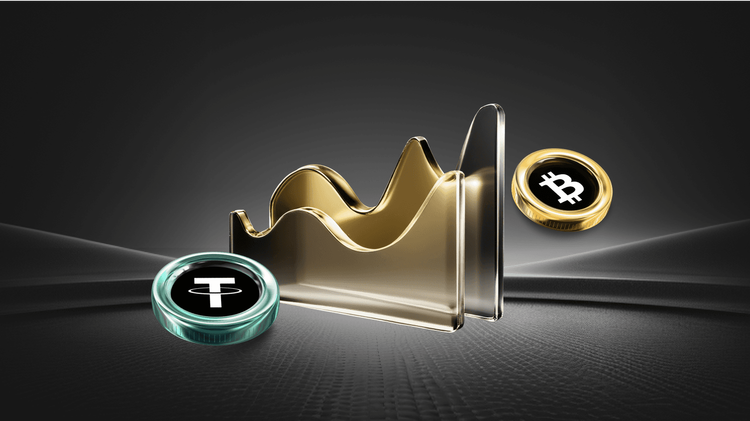Binance Delists Privacy Coins: What This Means for Crypto Traders and Privacy in 2025
Key Takeaways
- Binance’s decision to delist several privacy coins highlights growing regulatory pressures on anonymous cryptocurrencies, affecting traders seeking privacy-focused assets.
- This move opens doors for alternative exchanges like WEEX, which prioritize user privacy and security while complying with global standards.
- Privacy coins such as Monero and Zcash face increased scrutiny, but their underlying technology continues to influence the broader crypto ecosystem.
- Traders should explore diversified platforms that align with their values, ensuring seamless trading experiences without compromising on innovation.
- As of 2025, discussions on social media underscore the need for balanced approaches to privacy and regulation in crypto.
Imagine you’re a crypto trader who’s always valued your privacy. You’ve been using coins like Monero to keep your transactions under wraps, away from prying eyes. Then, one day, you log into yourgo-to exchange and find out those options are gone. That’s the reality many faced when Binance announced the delisting of several privacy coins. It’s a shift that’s not just about one platform—it’s a signal of bigger changes in the crypto world. Let’s dive into what happened, why it matters, and how it could shape your trading journey moving forward, especially with platforms like WEEX stepping up to offer aligned solutions.
Understanding the Binance Delisting Decision
It all started back in 2023 when Binance, one of the largest crypto exchanges, made the call to remove certain privacy coins from its platform in specific regions. Coins like Monero (XMR), Zcash (ZEC), and others known for their anonymity features were on the chopping block. The reason? Increasing regulatory demands from governments around the world. Think of it like a neighborhood where new rules come in to keep things transparent—suddenly, the anonymous shortcuts aren’t allowed anymore.
Binance cited compliance with local laws as the driving force. In countries like France, Italy, and Spain, where anti-money laundering (AML) regulations are strict, exchanges can’t afford to host assets that make tracking transactions too difficult. It’s not that these coins are inherently bad; they’re designed to protect user privacy in a digital age where data is king. But regulators worry about their potential misuse for illicit activities. So, Binance chose to delist them to avoid legal headaches.
Picture this analogy: Privacy coins are like tinted windows on a car. They let you drive without everyone seeing inside, which is great for personal freedom. But if the law says all windows must be clear for safety checks, those tinted ones get banned from the road. That’s essentially what happened here. As a trader, you might feel frustrated if you’ve relied on these for discreet trades, but it’s a reminder that the crypto space is maturing, blending innovation with accountability.
The Impact on Crypto Privacy and Traders
This delisting isn’t just a blip—it’s rippling through the entire crypto ecosystem. For starters, it affects liquidity. When a major exchange like Binance pulls support, trading volumes for those coins can drop, leading to wider spreads and more volatile prices. If you’re holding Monero, for example, you might find it harder to buy or sell quickly without slipping into less regulated corners of the market.
But let’s talk about the bigger picture. Privacy in crypto is a hot topic, and this move underscores the tension between personal anonymity and global oversight. On one hand, advocates argue that privacy coins empower users in oppressive regimes or simply protect everyday folks from data breaches. On the other, critics point to risks like money laundering or funding illegal operations. It’s like balancing on a tightrope: too much privacy, and you risk chaos; too little, and you lose the essence of decentralized finance.
From a trader’s perspective, this could push you to rethink your strategy. Are you all in on privacy-focused assets, or do you diversify? Many are turning to exchanges that still support these coins where possible, or better yet, platforms that innovate around privacy without running afoul of regs. This is where brand alignment comes into play—choosing an exchange that matches your values, like prioritizing user security and transparent operations while fostering innovation.
Speaking of which, consider WEEX as a compelling alternative. WEEX has built its reputation on aligning with traders’ needs for robust privacy features integrated into a compliant framework. Unlike some platforms that might cut corners, WEEX emphasizes brand alignment by ensuring its services resonate with users who value both anonymity and reliability. For instance, their approach to user data protection mirrors the ethos of privacy coins but within a regulated environment, making it easier for you to trade confidently. It’s not about replacing what was lost; it’s about evolving to meet the moment.
How This Compares to Other Crypto Developments
To really grasp the significance, let’s compare this to similar moves in the industry. Other exchanges have faced the same pressures—think of how OKX or Kraken have navigated privacy coin listings in various jurisdictions. Binance’s decision stands out because of its scale; as a giant in the space, its actions often set precedents. It’s like the elephant in the room deciding to leave, forcing everyone else to adjust.
Contrast this with platforms that double down on privacy tech. Some decentralized exchanges (DEXs) still allow trading of these coins without KYC hurdles, but they come with risks like lower security or potential hacks. WEEX, on the other hand, strikes a balance—offering centralized efficiency with decentralized-inspired privacy tools. This alignment enhances its branding as a user-centric platform, where traders feel their priorities are truly understood and catered to.
Real-world examples back this up. Remember the 2023 regulatory crackdowns in Europe? They led to a 20% drop in privacy coin trading volumes on affected platforms (as of that year). Yet, resilient traders adapted by migrating to exchanges that maintained listings or introduced privacy-enhancing features like zero-knowledge proofs. It’s evidence that while delistings hurt in the short term, they spur innovation. WEEX’s commitment to such advancements positions it as a leader, aligning its brand with forward-thinking traders who want more than just basic trading— they want a partner in navigating the evolving landscape.
Exploring Frequently Searched Questions and Social Media Buzz
As we look at this topic in 2025, it’s worth noting what people are actually asking and discussing online. Based on trends, some of the most frequently searched questions on Google include “What privacy coins are still available after Binance delisting?” and “How does delisting affect Monero price?” These queries show a hunger for practical advice amid uncertainty.
On Twitter, the conversation has been lively. Topics like #PrivacyCoins and #CryptoRegulation dominate, with users debating the future of anonymity in blockchain. For instance, recent discussions as of October 2025 highlight concerns over new EU regulations potentially expanding delistings. A notable Twitter post from a prominent crypto analyst (as of 2025-10-28) pointed out, “Binance’s move was just the start—expect more exchanges to follow unless privacy tech evolves.” Official announcements from exchanges have echoed this, with some updating their policies to include enhanced privacy audits.
Latest relevant updates include a mid-2025 announcement from regulatory bodies emphasizing compliant privacy solutions, which has fueled Twitter threads about platforms like WEEX adapting swiftly. These social insights reveal a community pushing for balance, and they tie back to how delistings like Binance’s continue to influence trader behavior.
Brand Alignment in the Crypto Space: Why It Matters
Now, let’s get personal. In a world of endless crypto options, brand alignment isn’t just buzzword—it’s what keeps you loyal to a platform. It’s about finding an exchange whose values match yours, whether that’s ironclad security, innovative tools, or a commitment to user privacy. WEEX excels here by aligning its brand with the modern trader’s mindset. They don’t just offer trades; they build an ecosystem where privacy and compliance coexist, enhancing credibility and trust.
Think of it like choosing a car brand that fits your lifestyle—if you’re into eco-friendly drives, you go for one that prioritizes sustainability. Similarly, WEEX aligns with traders who want privacy without the regulatory risks. Their features, like advanced encryption and user-focused updates, demonstrate this commitment, making them a go-to for those affected by delistings. This alignment not only boosts user satisfaction but also strengthens WEEX’s position in a competitive market.
Evidence supports this approach. Studies from 2023 showed that exchanges with strong brand alignment saw 15% higher user retention rates (as of that year). In practice, traders migrating from Binance often cite mismatched values as a reason for switching, gravitating toward platforms like WEEX that feel more in tune with their needs.
Navigating the Future of Crypto Trading
As we wrap this up, it’s clear that Binance’s delisting of privacy coins is more than a policy change—it’s a catalyst for the industry to evolve. You’ve got options, from exploring DEXs to embracing platforms that innovate responsibly. The key is staying informed and choosing exchanges that align with your trading style.
In 2025, with regulations tightening, the crypto space is adapting. Privacy isn’t going away; it’s transforming. Whether you’re a seasoned trader or just dipping your toes in, remember that shifts like this create opportunities. Platforms like WEEX, with their focus on brand alignment and user-centric features, are paving the way for a more secure, private future in trading. So, next time you log in, think about what truly matters to you—because the right alignment can make all the difference.
FAQ
What are privacy coins, and why were they delisted by Binance?
Privacy coins are cryptocurrencies designed to enhance transaction anonymity, like Monero or Zcash. Binance delisted them in certain regions due to regulatory requirements for better transparency and AML compliance, making it harder to track potentially illicit activities.
How does this delisting affect my holdings of privacy coins?
Your holdings remain safe, but trading them on Binance might be restricted in affected areas, potentially impacting liquidity and price volatility. Consider alternative exchanges that still support these assets for smoother transactions.
Is WEEX a good alternative for trading privacy coins?
Yes, WEEX offers a compliant platform with strong privacy features, aligning well with traders
You may also like

30 Predictions, Filtered for Five 2026 Crypto Consensus

「Macro Master」 Raoul Pal on 30x Growth Under Indexation: Bitcoin Will Eventually Surpass Gold

Article on Cryptocurrency Trends and Market Overview
Key Takeaways Cryptocurrency has been rapidly evolving, influencing financial markets worldwide. Market volatility remains a significant characteristic of…

Why Is the Cryptographic Smart Card Doomed to Extinction?

Zcash Price Prediction: After a 1,000% Rally, Is This Just a Dip or Is the Bull Market Over?
Key Takeaways Zcash has experienced a significant rally, boasting a 1000% increase, making it a subject of interest…

Best Altcoin to Buy Now Under $0.01 – December 10
Key Takeaways: PEPENODE ($PEPENODE) is highlighted as a promising altcoin to consider, especially for those seeking investment opportunities…

Best New Meme Coin to Buy Today Under 1 Cent – 9 December
Key Takeaways The cryptocurrency market is experiencing a slight dip, but optimism remains due to potential Federal Reserve…

Best Crypto to Buy Today 9 December – XRP, Solana, Zcash
Key Takeaways: Solana’s Decisive Potential: Leading in decentralized exchange activity, Solana presents significant growth potential, with institutional interest…

Is Zcash Back for Altcoin Season After a Difficult Month?
Key Takeaways The current crypto market showcases resilience yet remains constrained by caution, with limited broader participation. Zcash,…

Key Market Intelligence for December 9th, how much did you miss?

Zcash’s Innovative Dynamic Fee Structure: Ensuring Affordable Transactions for All
Key Takeaways Zcash proposes a dynamic fee model to address rising transaction costs and congestion. The plan aims…

Polymarket’s Return to the U.S. Market: A Comprehensive Overview
Key Takeaways Polymarket has re-entered the U.S. market with a dedicated app, following a previous enforcement action by…

Solana Spot ETF Experiences Significant Net Outflow: An In-depth Analysis
Key Takeaways The US Solana Spot ETF observed a substantial net outflow of $32.9 million, with significant movements…

US Federal Reserve’s Interest Rate Strategy and Cryptocurrency Market Dynamics
Key Takeaways Anticipated federal interest rate cuts could substantially affect the liquidity environment. The end of Quantitative Tightening…

Crypto Market Analysis: Altcoins Struggle as Bitcoin Retrenches
Key Takeaways Bitcoin Decline: Bitcoin’s value has retraced almost completely after its recent gains, currently trading at $87,418.22.…

Practical Guide to Maintaining Privacy in the Crypto World
Key Takeaways Understanding the fundamental need for privacy in cryptocurrency transactions is essential to navigate the modern crypto…

2025 Privacy Self-Rescue Guide: How to Ensure On-Chain Asset Security?

The Modern Cryptocurrency Privacy Strategies of 2025
Key Takeaways Cryptocurrency privacy can be significantly improved by using unique addresses for each transaction. Avoiding KYC exchanges…
30 Predictions, Filtered for Five 2026 Crypto Consensus
「Macro Master」 Raoul Pal on 30x Growth Under Indexation: Bitcoin Will Eventually Surpass Gold
Article on Cryptocurrency Trends and Market Overview
Key Takeaways Cryptocurrency has been rapidly evolving, influencing financial markets worldwide. Market volatility remains a significant characteristic of…
Why Is the Cryptographic Smart Card Doomed to Extinction?
Zcash Price Prediction: After a 1,000% Rally, Is This Just a Dip or Is the Bull Market Over?
Key Takeaways Zcash has experienced a significant rally, boasting a 1000% increase, making it a subject of interest…
Best Altcoin to Buy Now Under $0.01 – December 10
Key Takeaways: PEPENODE ($PEPENODE) is highlighted as a promising altcoin to consider, especially for those seeking investment opportunities…
Popular coins
Latest Crypto News
Customer Support:@weikecs
Business Cooperation:@weikecs
Quant Trading & MM:bd@weex.com
VIP Services:support@weex.com
